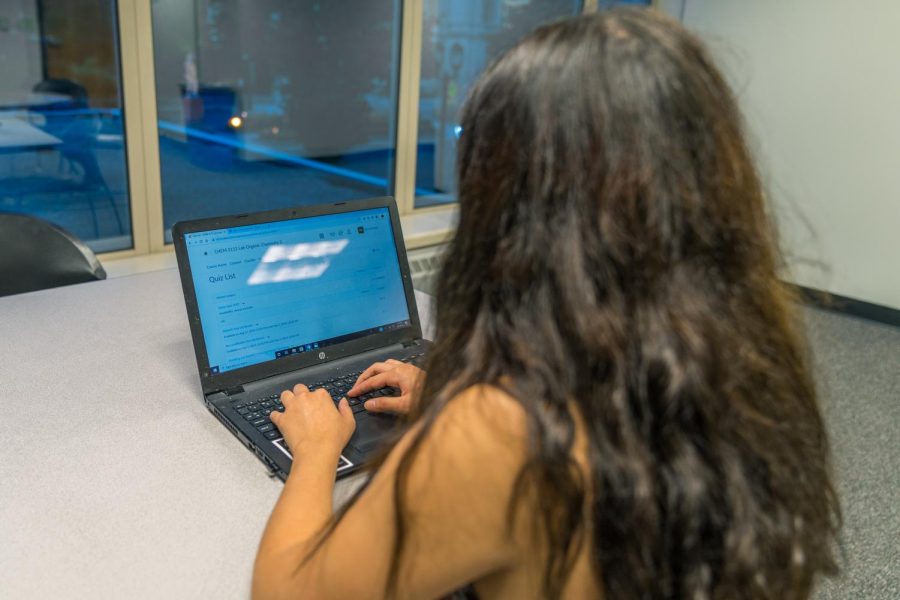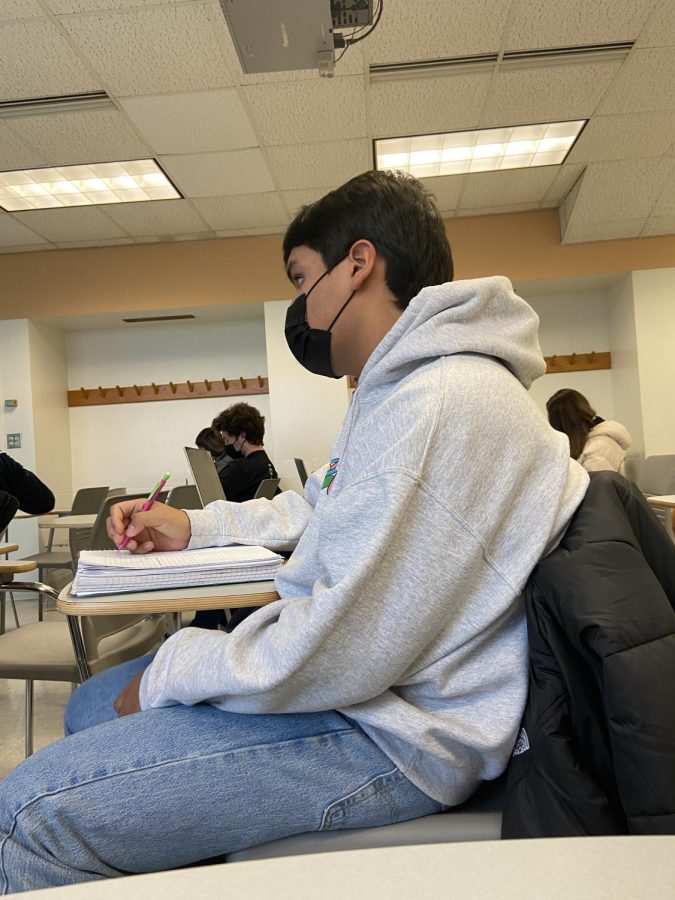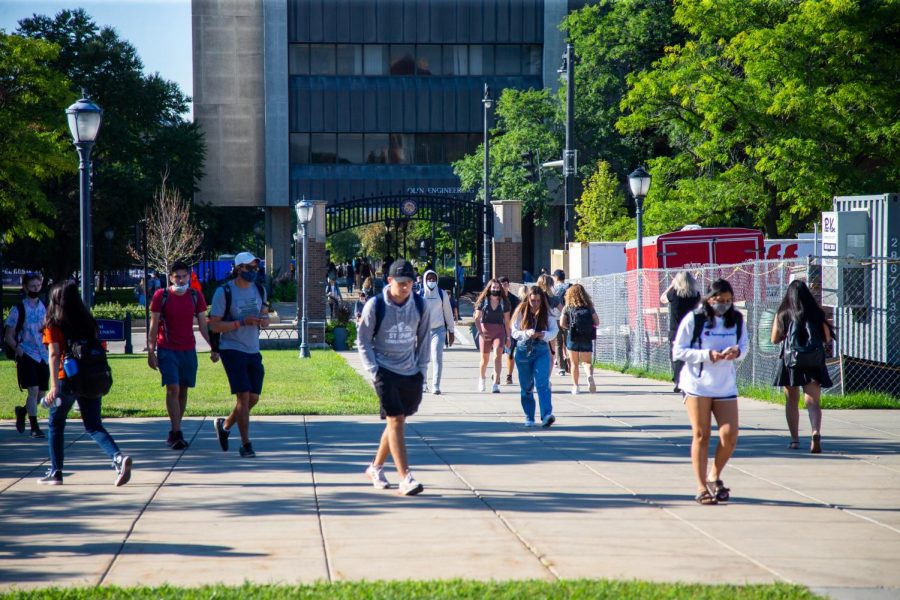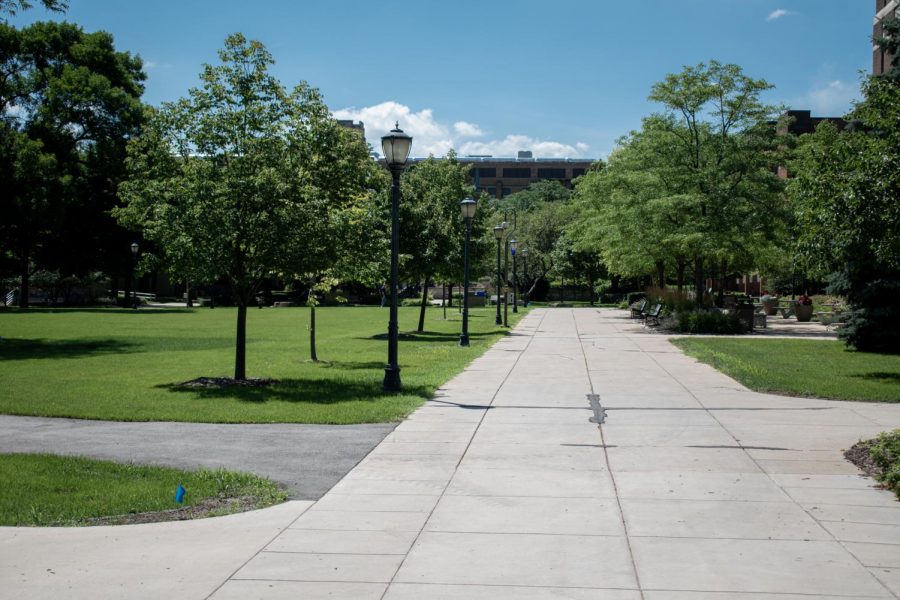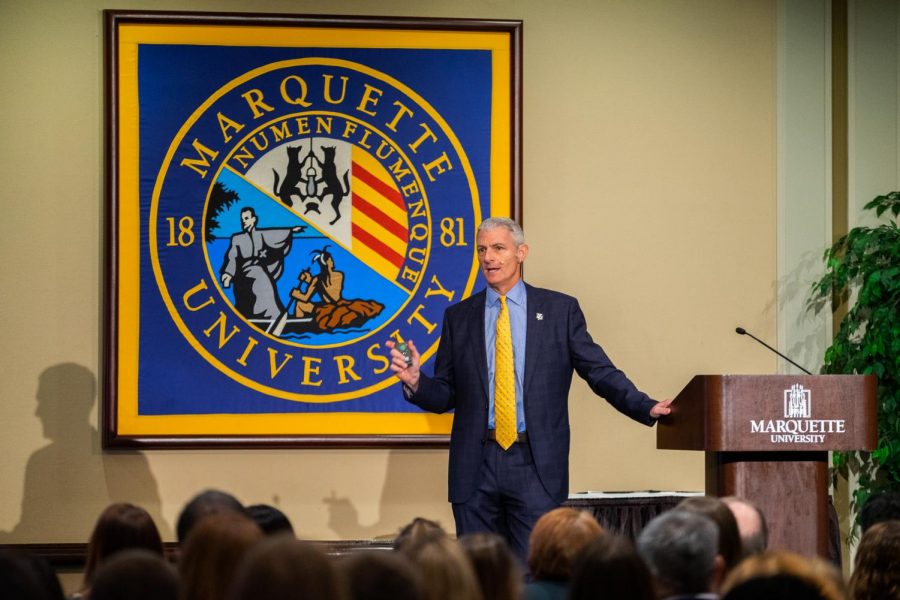Teachers across Milwaukee and the state of Wisconsin are preparing to move all K-12 in-person class materials for online through at least April 6 in the wake of the coronavirus pandemic.
For Marquette University, this week starts a transition phase for faculty to learn how to move forward with the semester, in which all in-person classes are suspended from March 23 until April 10.
University spokesperson Chris Stolarski said while in-person training sessions will be held throughout the week, remote training sessions in Microsoft Teams and recorded sessions are being offered as well to aid in social distancing, or canceling or suspending in person activities in order to slow down the spread of the virus. Social distancing also includes physically distancing oneself from others if in public spaces.
Stolarski said vice provost of academic affairs John Su and chief of digital learning David Schejbal are leading a team of experts from information technology services to help faculty members understand how to use Desire2Learn, or D2L, and Microsoft Teams, both online ways to assign work and have class discussions.
“The university owns a Microsoft Teams license and students have had access to this app for the past year,” Stolarski said in an email. “As such, we did not want to introduce a new app so that we may maintain a consistence experience.”
Spring break for Marquette students was March 9-13. The university notified students of the in-person class suspension last Thursday after many schools and universities across the country canceled classes and encouraged students to practice social distancing.
Stolarski said the university will make a determination on the remainder of the semester as soon as all information is available to make an informed decision that is in the best interest to the campus community. It is unclear as to when this would be.
Though in-person classes are suspended now, Stolarski said summer classes are still continuing and students can enroll at this time.
The coronavirus pandemic, also known as COVID-19, has seen 72 confirmed cases in Wisconsin as of Tuesday, a significant increase from the six confirmed cases reported on March 12. As of Tuesday, there are currently 40 cases in Milwaukee County.
Jennifer Cook, a counselor in education and counseling psychology in the College of Education, said staff will be working to determine how to provide educational continuity to all students, especially those who are slated to graduate and have clinical placement hours to complete and standardized exams to take.
“Our goal is to do our absolute best by our students in terms of their education while recognizing the added stressors they may be experiencing, like additional child/elder care responsibilities, working at their jobs differently to stay financially solvent, and limited access to computers and resources,” Cook said in an email.
Cook said she believes everyone will do the best they can to learn what they can so the best support is helpful for students.
“Online is a different beast and don’t think it’s all that helpful to compare it to in-person classes,” Cook said in an email. “If we expect it to be the same or are constantly comparing online and in-person, many of us will be perpetually frustrated and dissatisfied.”
Cook said it is better to understand that online classes are different and to know that this is a different situation, though faculty and students will try their best to get what is needed from the hand that has been dealt.
However, 2011 and 2013 Marquette alum Sabrina Bartels, who is a counselor at the West Allis School District, said it will be interesting to see how the transition from in-person classes to online classes will affect mental health.
“I imagine that in terms of my students with high anxiety, being able to stay at home and in a place they know will be huge and help them through this uncertainty with coronavirus,” Bartels said in an email.
While she said she knows some students will enjoy the time off and away from school, there are some students who come to school for a safe haven.
“A place where they have food, warmth and people who care about them … those are the students I really worry about during this time,” Bartels said in an email. “Some of these effects we may not see until we come back in April.”
Bartels said there will be a long adjustment period for students to get back into the routine of school when they return.
In general, Bartels said she can see how some students may panic.
“I think this whole situation in general is causing a significant amount of anxiety for kids and adults,” Bartels said in an email. “It may also cause some people to really question the safety of life outside of the home.”
She said people need to have a conversation around the purpose of quarantining as well as how alike or different the coronavirus is to other illnesses.
John Curran, a professor in the College of Arts & Sciences, teaches two classes this semester. He said he likes to mix discussion with lecture.
“I hate technology and use it pretty much only as required to,” Curran said in an email.
Curran said he is not going to decide on anything regarding his online class until he receives further advice from different colleagues and has explored various possibilities, though he said he will most likely stick to a discussion thread in D2L on a schedule that abides by his regular class syllabi.
“We should develop all kinds of ways in our society to help people get the education right for them,” Curran said in an email. “But nothing beats a classroom, especially for the humanities. Reading takes time; writing takes time, or it should. The flow of ideas, ideas striking you and your reacting to them, and your sharing your initial reactions – all that happens face to face.”
In order for students to focus while they are at home, Cook suggests they draw on their past experiences of sharing a communal living space with roommates.
“It can be challenging to find a quiet space to study and do homework right now, but you all know how to do this,” Cook said in an email.
Cook said her students know that she is always available to meet and answer questions, and this is something she won’t change.
“I will be holding my office hours virtually so students can ‘stop in’ if they have questions or just want to say ‘hi’,” Cook said in an email.
One thing Cook said she is planning to do is to post video updates combined with written updates so students still see and hear her.
“I hope this will help them feel connected and know I’m here for them like I always am,” she said in an email.
Bartels said she will be able to reach her students through email or Google Forms, even hosting video chat through Google Hangouts. She said admitted there will be inevitable challenges, however.
“I wish I could say the transition will be seamless,” Bartels said. “But I think there are going to be bumps in the road, regardless of how well we plan. This kind of situation is pretty unprecedented.”
She said her best piece of advice to all students is to stick to a schedule.
Stolarski said an Executive Leadership Team has established a cross-disciplinary COVID-19 Response Team. The team meets several times a day to evaluate changing guidance from public health officials, which includes the Centers for Disease control and Prevention, Wisconsin Department of Health Services and Milwaukee Health Department in order to make recommendations to the ELT on new protocols and plans related to the virus.
Currently, there are five working teams dedicated to campus response: medial, academic, employee, student life/residence life and external contacts.
This story was written by Natallie St. Onge. She can be reached at natallie.stonge@marquette.edu.

